How often has a potential performance of a lifetime turned into a performance from hell? Are you suffering from stage fright? Laurinel Owen gives advice on overcoming this common affliction
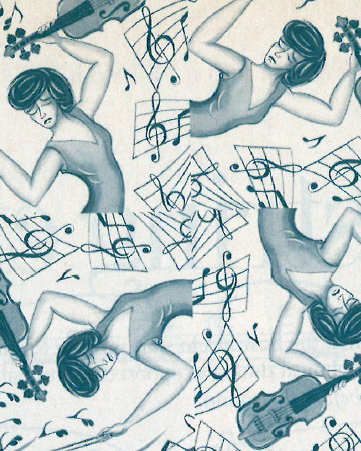
Explore more Technique like this in The Strad Playing Hub
Performing has many rewards, yet stage fright may cause you to forget why you love music. In working out a programme for stress management don't lose sight of the reasons why you perform and bear in mind that none of these techniqnes work overnight.
Having spent years learning to play your instrument, it should be a relatively small additional investment to dedicate the regular time and energy which is needed to master the methods of combating stage fright.
1. Deep Breathing
This most basic relaxation technique assures that more oxygen gets to the brain and since you take in more air it slows down your breathing rate and makes it more regular.
Place your hand on your stomach just above your waist. Breathe deeply and feel your hand rise along with your abdomen, making sure that you fill your entire lungs and not just your upper chest.
2. Meditation
Sit or lie comfortably in a distraction-free room. Make sure your head is supported. Do not cross your arms or legs. Choose a one syllable word and in your head repeat it over and over again. This gives your mind something to focus on.
If an outside thought creeps in just go back to the word. Try thinking the word as you breathe in and out. Do not try to make anything happen, just feel your body become calm.
3. Self-hypnosis
As with meditation, sit or lie comfortably in a distraction-free room with your head supported and limbs free. You will tell yourself to relax every muscle beginning with your head and going systematically through each part of your body. Relax your forehead, then eyes, cheeks, jaw and tongue. Repeat over and over these calming thoughts. Let your breathing control each relaxation request and feel the tension flow out of your body. Go down to your neck and shoulders, then to each arm while feeling them become heavy with calm. When you have gone through your whole body and have imagined that the tightness has melted away, tell yourself that you are going into a deep trance.
Begin at ten and count very slowly backwards until you reach one. Imagine descending into a shaft as if you are in an elevator going down. By the count of one you will be very relaxed. Now, in simple sentences, give your subconscious positive thoughts. Say them to yourself as if they are true. For example: 'I am a commanding performer. I love to play for an audience. I am relaxed in front of people'. The unconscious mind cannot distinguish between dreams and reality so if you feed it ideas of success while in a state of deep relaxation those thoughts will positively influence it. The mind will then hold a reservoir of ideas without self-imposed limitations. After repeating your sentences several times, tell yourself that you will wake up on the count of ten, feeling completely refreshed. Count slowly to ten. You can then stretch and wake up.
4. Imaging
This technique plays a major role in the sports world and is outlined thoroughly in C.A. Garfield's Peak Performance. He states that 'mental rehearsal increases concentration through deep relaxation, which erases thoughts and feeling from the mind and body. Once this is achieved, the mind can be compared to a blank screen upon which we project the moving images that will direct our athletic actions'.
Once you are in a state of deep relaxation you will run through your mind very detailed scenes of your ideal performance. Visualise every movement: picture the stage and how you walk out holding your instrument, feel the warmth of the lights and your confidence as you bow and the audience applauds. Sense the response of the bow on the string as you begin the opening piece, hear how your sound projects and the sense of hush that falls over the audience, play through the entire programme in your mind's eye. The actual physical movement of the muscles is not necessary to teach the body. Mental training can be a very effective tool in learning how to achieve performance goals.
Read: How to perform with confidence – 3 golden rules about stage performance
Read: The Inner Monsters responsible for performance nerves
Listen: The Strad Podcast #13: Dr. Renée-Paule Gauthier on dealing with performance anxiety
Discover more Technique like this in The Strad Playing Hub
5. Experience
Sometimes stage fright rears its ugly head because players are insufficiently prepared or have a lack of positive confidence-building experience. How many times have you said to your teacher or heard your students say: 'I don't know why it sounds so bad, it was good at home'. If you cannot perform up to your expectations several times at home in mock performances it will not miraculously sound great in front of an audience. Burton Kaplan in his article Practising for Artistic Success recommends working out a performance schedule for yourself. Make a plan that at a certain time you will walk into the room, bow and play your piece as if it were the performance.
Don't stop. If you are satisfied after several different attempts, play for a recorder: (You'll be surprised how nervous this inanimate machine will make you.) If you are satisfied, play for a couple of friends or a video camera. Try the performance in the hall itself. Each practice performance should slowly raise the stakes. Successful performances will add to your feeling of security and teach you to cope with your nerves. Unsuccessful ones may mean the piece is not ready or is too difficult for you to feel comfortable with at present. Search out venues such as old age homes, school music classes or little soirées at home which are non-threatening environments and so can help build performance confidence.
6. Food
Do not drink caffeine or alcohol or eat foods with sugar before a performance. Foods rich in complex carbohydrates such as whole grains (brown rice, wholewheat, etc) will give you the longest lasting energy. Protein is harder for the body to digest. Bananas and pasta are my favourite pre-concert food.
7. Drugs
Beta-blockers such as Inderol are commonly used to relieve the physical symptoms of performance anxiety such as a fast heart beat and shaky limbs. Since they are prescription drugs used for the treatment of high blood pressure, discuss this with your doctor but remember you may end up feeling that a successful performance was the result of the drug and not you. This may lead to a psychological addiction.
This article was first published in The Strad's December 1996 issue
Read: Performance anxiety: Fighting stage demons
Read: Kim Kashkashian's top 5 tips on combating stage fright
Read more Technique like this in The Strad Playing Hub











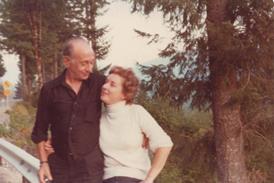

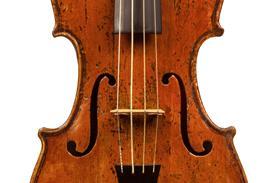






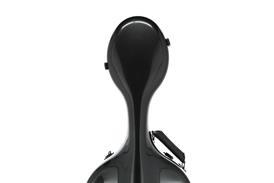
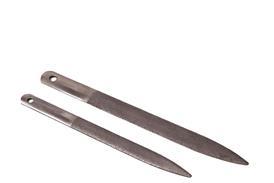
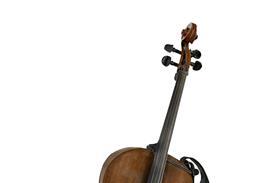






No comments yet